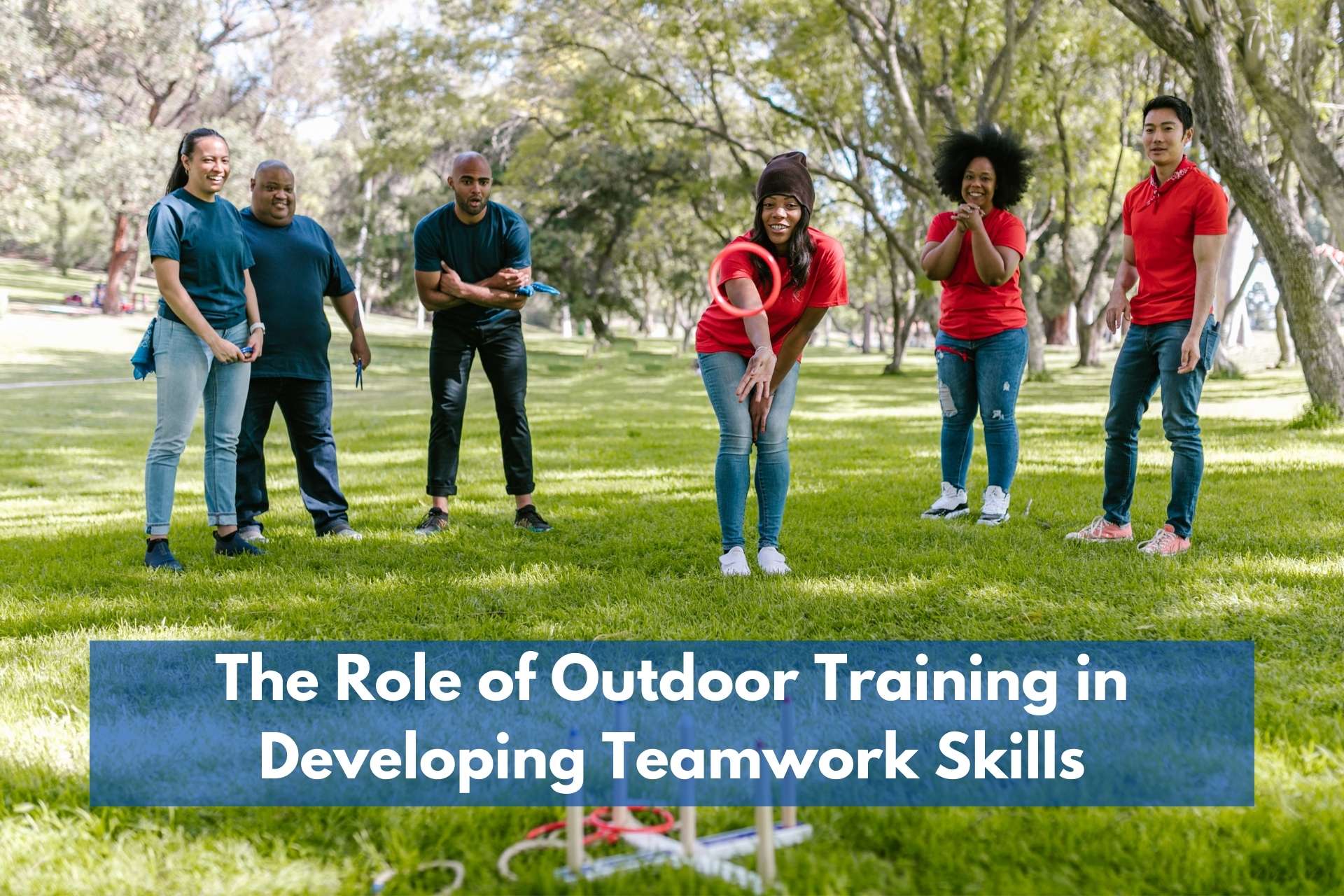The Role of Outdoor Training in Developing Teamwork Skills

Teamwork is a crucial part of any successful organization. When people work well together, they can accomplish more, solve problems faster, and build stronger relationships. One of the most effective ways to develop and improve teamwork skills is through outdoor training. Outdoor activities not only challenge individuals but also encourage collaboration, communication, and trust within a team. In this article, we’ll explore how outdoor training helps in developing teamwork skills and why it’s such an effective method.
What Is Outdoor Training?
Outdoor training, often referred to as outbound training or adventure-based learning, involves activities conducted in an outdoor environment. These activities can range from obstacle courses, hiking, and camping to more structured exercises like problem-solving challenges and group tasks. The goal of these exercises is to build teamwork and leadership skills, foster communication, and develop trust among participants in a setting away from the typical workplace.
Benefits of Outdoor Training for Teamwork
Encourages Communication: Effective teamwork begins with communication. Outdoor training activities require team members to communicate clearly and work together to complete challenges.
Whether it’s guiding a blindfolded teammate through an obstacle or planning how to cross a river using limited resources, communication becomes essential.
These exercises help participants practice giving clear instructions, listening actively, and making collective decisions, all of which are vital for teamwork in the workplace.
Builds Trust Among Team Members: Trust is a foundational element of teamwork. In outdoor training activities, team members often have to rely on each other to complete tasks. For example, a trust fall exercise, where one person falls backward and relies on their teammates to catch them, directly builds trust.
As participants successfully complete these challenges together, they gain confidence in each other’s abilities, which translates into better teamwork in real-life scenarios.
Promotes Problem-Solving Skills: Teamwork is often tested when a group faces a complex problem. Outdoor training exercises are designed to simulate real-world challenges that require creative problem-solving. For instance, a team may be asked to construct a shelter with limited materials or solve a puzzle under time constraints. These challenges encourage participants to think critically, brainstorm solutions together, and implement strategies as a group. Problem-solving in a team setting fosters collaboration and strengthens the ability to tackle issues collectively.
Encourages Leadership and Role Allocation: In any team, individuals have different strengths and weaknesses. Outdoor training allows team members to explore leadership roles and learn how to delegate tasks effectively.
In some exercises, leadership may rotate, allowing everyone the chance to lead and experience different roles within the team. This helps identify natural leaders and teaches participants how to guide a team while also being a valuable team player.
Fosters Collaboration and Unity: Outdoor training promotes collaboration by creating a sense of unity. When team members work together to achieve a common goal, they begin to understand each other’s strengths and how they can complement one another.
This sense of unity builds a stronger team, which can easily transfer these collaborative skills to their daily work. Additionally, the relaxed environment of outdoor settings can break down hierarchical barriers, making everyone feel more comfortable contributing ideas.
Improves Adaptability and Flexibility: The unpredictability of outdoor environments teaches teams to adapt quickly to changing situations. For example, weather conditions, unexpected obstacles, or time limitations can arise during an outdoor exercise.
In such scenarios, the team must adapt, reassess the situation, and come up with new strategies. This helps improve flexibility and resilience, two important qualities for effective teamwork in a dynamic work environment.
Boosts Morale and Motivation: Outdoor training can be a fun and refreshing break from the usual office setting. Engaging in physical activities and spending time in nature often leads to reduced stress and improved mental well-being.
When team members enjoy their time together in an outdoor setting, it can boost morale and increase motivation. This positive energy can be carried back into the workplace, resulting in a more productive and engaged team.
Types of Outdoor Training Activities for Team Building
There are several types of outdoor training activities that are particularly effective in building teamwork skills. Here are a few examples:
Obstacle Courses: Teams work together to overcome physical obstacles, promoting problem-solving, communication, and trust.
Treasure Hunts: Teams must collaborate to find hidden items using clues, which encourages strategic thinking and teamwork.
Camping and Hiking: Spending time together in nature, away from the distractions of the office, helps teams bond and work together in a relaxed environment.
Survival Challenges: Teams must work together to accomplish a task, such as building a shelter or starting a fire with limited resources, teaching them to rely on each other’s skills.
Group Puzzles and Riddles: These activities challenge the team’s problem-solving skills and require input from everyone to reach a solution.
Why Outdoor Training Is So Effective
Outdoor training works because it takes people out of their comfort zone. In an unfamiliar environment, team members must rely on each other more than they would in a typical office setting. This change in surroundings allows them to view challenges differently and encourages creative solutions. Additionally, the physical nature of many outdoor activities promotes engagement, keeping participants more invested in the tasks at hand.
Unlike traditional team-building exercises in an office setting, outdoor training allows teams to interact in a more natural and relaxed way. The informal atmosphere helps break down barriers, which can improve communication and make collaboration more enjoyable.
Lasting Impact of Outdoor Training on Teamwork and Collaboration
Outdoor training plays an important role in developing teamwork skills. By promoting communication, trust, problem-solving, and leadership, these activities help teams function more effectively in both personal and professional settings. Whether it’s through obstacle courses, group puzzles, or survival challenges, Inspirit, an outdoor training company in Mumbai can provide customized experiences that encourage collaboration and unity while also being an enjoyable way to build strong team bonds.




